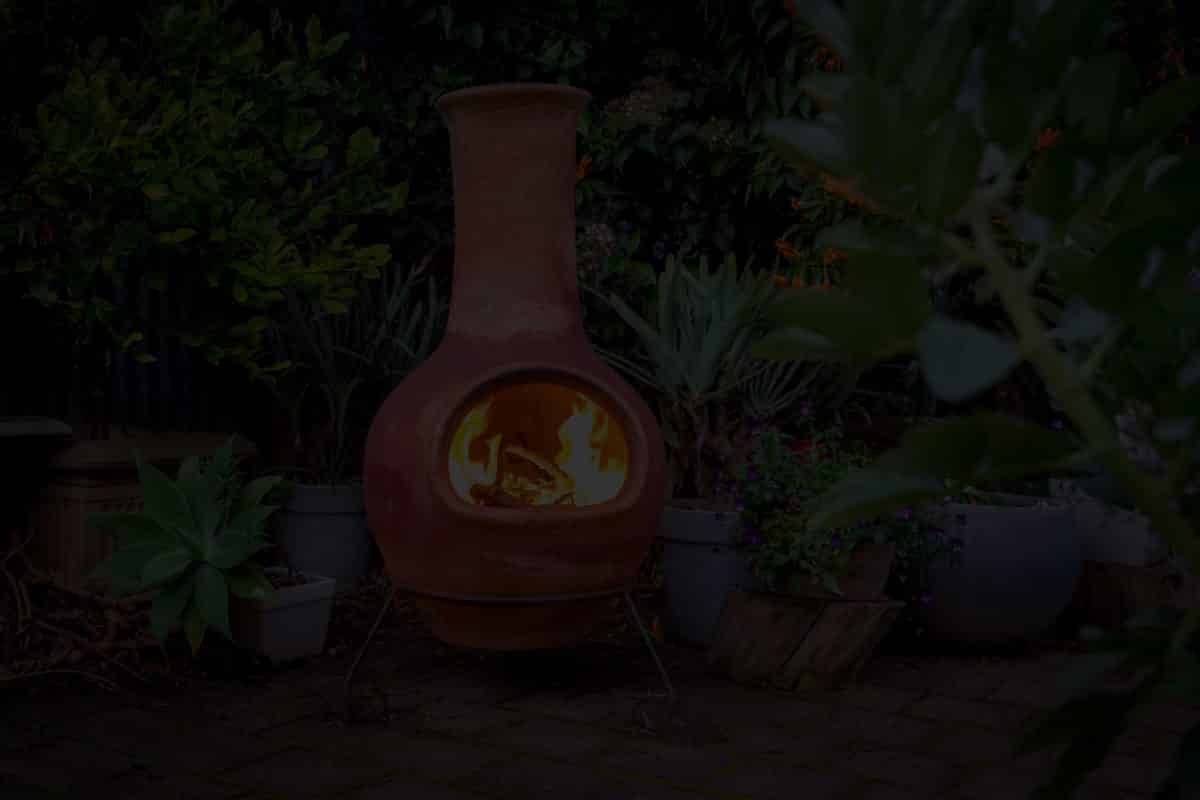Benefits of a chiminea
Sitting around a fire is good for you – so light a chiminea!
If you’ve ever wondered why you get a powerful sense of real well-being and satisfaction from sitting around an open fire, bonfire, barbecue or chiminea, you’re not alone. It’s a human thing, and there’s a very good reason for it. So says a fascinating article in the Huffington Post.
Why lounging by a fire is good for your health
According to a new scientific study reported in the journal Evolutionary Psychology, the simple act of watching a fire actually lowers your blood pressure. The University of Alabama carried out the research, which hints that the pleasure humans get from huddling around a crackling fire is probably rooted deeply in our evolution.
It’s no surprise when, since prehistoric times, fire has meant safety from predators, light, warmth, comfort and a way to cook food. For countless thousands of years fire has been a life saver, a life-enhancer, an essential part of the human survival kit. As Wikipedia says:
“Evidence of widespread control of fire—depending on how one defines control —dates to approximately 125,000 years ago and earlier. Evidence for the controlled use of fire by Homo erectus beginning some 400,000 years ago has wide scholarly support, with claims regarding earlier evidence finding increasing scientific support. Claims for the earliest definitive evidence of control of fire by a member of Homo range from 0.2 to 1.7 million years ago.”
The longer you watch a fire, the more chilled you get
The team asked 226 adults to watch a video of a fireplace, taking their blood pressure before and afterwards as well as quizzing the participants over how they felt about the experience. The results were dramatic, with a 5% decrease in blood pressure among those who watched the fire video complete with sound. And the longer people watched the fire, the more chilled they became.
Control groups were given slightly different experiences. One bunch of people saw the video without sound, others watched an upside down version. Their blood pressure increased. Oddly, the chilling effect of fire was most noticeable in people who scored highest for ‘pro-social’ behaviour like empathy and altruism, probably because sitting around a fire helps bond groups of individuals. If you’ve ever sat chatting around a camp fire long into the night with friends and family, you’ll get what they mean. It’s potent stuff, and the ancient folk who co-operated in keeping the fire lit would have had an evolutionary advantage over the lazy buggers who let theirs go out.
It looks like sitting by a fire is an extremely absorbing thing to do. We drift off into it, and eventually all of our senses become deeply involved. We already know that having a calming focus can help reduce anxiety, and a fire delivers exactly that: we look at it, hear it, smell it, and taste the smoke in the air. And the effects are even more dramatic after dark when the magical, colourful flames come into their own.
Adding storytelling to the equation
We reckon bringing storytelling into the equation makes the positive effects of fire even stronger. As well as hanging out around the fire, our ancestors probably told tall tales around it. Perhaps people from other tribes turned up with news, which would be spread to others thanks to fireside chats. This news would also have supported survival, revealing fresh food sources to tap into, lands to explore, resources to collect and threats to avoid. And we’re still hooked on it. TV, movies, books, ebooks, podcasts, radio programmes, the news, it’s all storytelling in one form or another.
Combine fire and storytelling, add good food into the mix and it’s no wonder people enjoy chimineas so much. It goes a lot further than personal taste, deeper than bone-deep. Fire, food and talk are in our DNA and despite all the trappings of the modern world, they’re still essential for human happiness, if not actual survival.
If you want to delight your inner ancient human, get busy with a chiminea this autumn. Chill out until you’re so relaxed you’re more or less horizontal, and feel absolutely wonderful. Isn’t it great that something so simple is so good for us?

